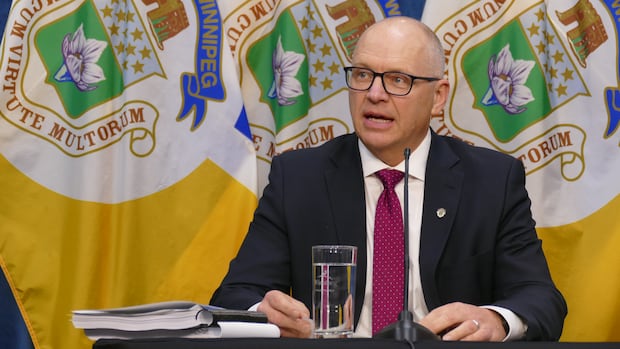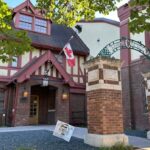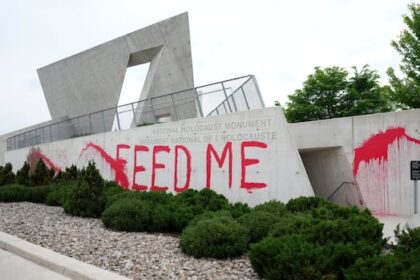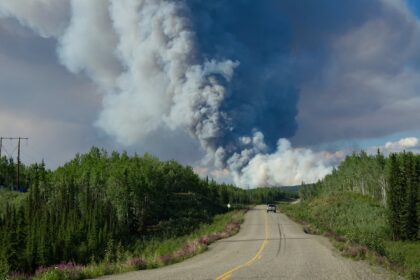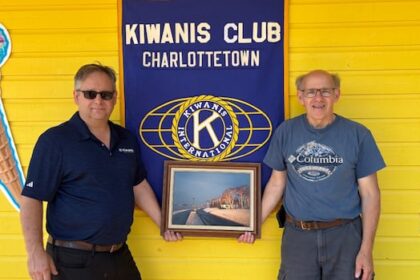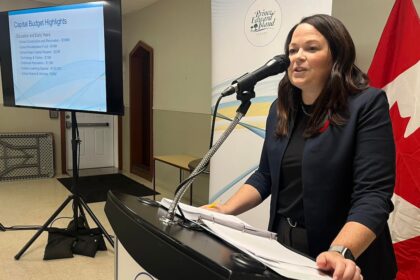Manitoba·BreakingThe City of Winnipeg plans to significantly ramp up borrowing and spending on capital projects next year, with hundreds of millions more going to fund major infrastructure projects like upgrades to the North End Water Pollution Control Centre and purchases of more buses.Increase driven mainly by costs related to North End Water Pollution Control Centre upgradesListen to this articleEstimated 6 minutesThe audio version of this article is generated by text-to-speech, a technology based on artificial intelligence.Mayor Scott Gillingham releases the draft 2025 budget for the City of Winnipeg. ( Maggie Wilcox/Radio-Canada)The City of Winnipeg plans to significantly ramp up borrowing and spending on capital projects next year, with hundreds of millions more to fund major infrastructure projects like upgrades to the North End Water Pollution Control Centre and purchases of more buses.The city’s capital budget grew from $677 million in 2025 to $1.19 billion in its draft 2026 budget, released Friday — a 76 per cent increase. Most of that increase is due to the city’s commitment to fund one-third of the estimated $1.5 billion needed to build a nutrient removal facility, the third and final phase of the sewage treatment plant project. The 2026 budget will set aside $547 million for the project, to be financed through debt. The city must complete the upgrades because the North End plant is running out of capacity. Spending on Winnipeg Transit infrastructure more than doubles, from $75 million to $137 million. Most of that is dedicated toward purchasing new buses — $101 million compared to $42 million in 2025. The city also plans to spend $21 million to begin work on rehabilitating the twin overpasses that take Lagimodiere Boulevard over Concordia Avenue, which is expected to cost $39 million in total. The increase to Winnipeg’s capital budget in 2026 is driven mainly by the commitment to fund one-third of the estimated $1.5 billion needed to build a nutrient removal facility at the North End Water Pollution Control Centre. (Cameron MacLean/CBC)In an effort to reduce costs related to overtime and Workers Compensation Board claims related the Winnipeg Fire Paramedic Service, the city plans to create a “resource pool” of firefighters who will be available to fill absences, starting with 10 full-time employees next year and rising to 40 by 2029.The city also plans to add 11 new paramedic positions. The total Winnipeg Fire Paramedic Service budget rises to $262 million, up $8 million from $254 million in 2025.Winnipeg homeowners will see an overall 3.5 per cent property tax increase next year that the city says is needed to fund road renewals and safety improvements, as well as the general operating budget, which is up 5.2 per cent to $1.49 billion. It’s a smaller hike than last year’s 5.95 per cent jump.The property tax increase means the owner of a home assessed at $371,000 will pay $75 more this year. That’s expected to rise approximately $26 million more per year for the city. Last year’s budget hit Winnipeggers with the largest property tax increase since 1990, a 5.95 per cent hike, up from 3.5 per cent annual increases in recent years. City officials said the jump was needed to cover rising costs for snow clearing, a shortfall in transit fare revenue and escalating workers compensation claims related to fire-paramedic injuries.It also included a proposed pilot project that would test whether the city could save any money by raising the threshold for the first residential street plow from 10 centimetres of snow to 15 centimetres — an idea that was abandoned a month later after getting an icy reception from the public.In its second-quarter financial update in September, the city forecast it would finish this fiscal year with a $17.7-million deficit, a $1.2-million improvement from the first quarter.The main drivers of the deficit include lower-than-expected planning, property and development revenues, higher overtime and workers compensation costs in the Winnipeg Fire Paramedic Service, a drop in transfers from municipal accommodations (the department that manages the city’s properties) and unachieved savings targets in the Winnipeg Police Service.The city expects to have enough in its financial stabilization reserve to cover the forecast deficit, with $14.7 million left over. 2026 Winnipeg budget highlightsOperating budget (spending on city services): $1.49 billion, up $74 million from $1.42 billion in 2025. That’s a 5.2 per cent increase.Capital budget (tax-supported spending on infrastructure and equipment): $1.2 billion, up $518 million from $677 million in 2025.Property taxes: Property taxes rise 3.5 per cent, which is a smaller hike than the 5.95 per cent increase in 2025. The hike will raise an additional $27 million for the city. A home assessed at $371,000 will pay $75 more this year. The frontage levy remains unchanged at $6.95 per foot.Total projected property tax haul in 2025: $842 million, which covers 56 per cent of city spending.Transit fares: Going up 10 cents on Jan. 1. Adult fares for 2026 will be $3.45. Water and sewer dividend: $45.2 million diverted from water and sewer revenues to help balance the operating budget.Business tax: Rate remains 4.84 per cent, but all small businesses with rental values under $47,500 will get a full rebate.General fee increases: 2.5 per cent, with some exceptions. Garbage and recycling fees: Up $10 a household to $264 in 2026.911 levy: No longer in the budget. The province wouldn’t let the city collect the fee to pay for upgrades coming next year.Police budget: $370 million, up $18 million from $352 million in 2025.Fire-paramedic budget: $262 million, up $8 million from $254 million in 2025. Road repairs: $156 million, down on paper from $167 million in 2025. Most of the reduction is an accounting change, as some of last year’s funds are devoted to the widening of Route 90 and the extension of Chief Peguis Trail.Snow-clearing budget: $50 million, up $4 million from $46 million in 2025.North End sewage treatment plant: $547 million toward the final phase of upgrades to the North End Water Pollution Control Centre. The city will borrow money for this.Transit buses: $101 million to buy new buses, up from $42 million in 2025.Lagimodiere Overpass: $21 million this year for $39-million rehabilitation at Concordia Avenue.ABOUT THE AUTHORCameron MacLean is a journalist for CBC Manitoba living in Winnipeg, where he was born and raised. He has more than a decade of experience reporting in the city and across Manitoba, covering a wide range of topics, including courts, politics, housing, arts, health and breaking news. Email story tips to cameron.maclean@cbc.ca.
Thursday, 5 Mar 2026
Canada – The Illusion
Search
Have an existing account?
Sign In
© 2022 Foxiz News Network. Ruby Design Company. All Rights Reserved.
You May also Like
- More News:
- history
- Standing Bear Network
- John Gonzalez
- ᐊᔭᐦᑊ ayahp — It happened
- Creation
- Beneath the Water
- Olympic gold medal
- Jim Thorpe
- type O blood
- the bringer of life
- Raven
- Wás’agi
- NoiseCat
- 'Sugarcane'
- The rivers still sing
- ᑲᓂᐸᐏᐟ ᒪᐢᑿ
- ᐅᑳᐤ okâw — We remember
- ᐊᓂᓈᐯᐃᐧᐣ aninâpêwin — Truth
- This is what it means to be human.
- Nokoma


